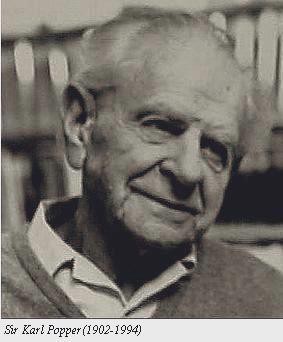Learn More About the Scientific Method
by Wm. Bruce Weaver, Ph.D.
Director, Monterey Institute for Research in Astronomy
Dedicated to Research and Education in Astronomy For Over 30 Years.
So, I proved my hypothesis...
This is probably the most commonly heard (or read) phrase at a science fair. And, it's wrong!
Before I explain why this is wrong, let me say that I really enjoy judging science fairs. Not for the plastic solar systems, volcano models, and other canned science book staples but for the exciting fresh look at basic science and engineering issues addressed by many of the students at the fair. The best projects are by students who know a lot about their topic but not so much that they are grinding out a standard result following the established protocols of the discipline. Rather, they have crafted their own, often novel, approach or viewpoint which causes us judges to think hard about the basic underpinnings of the chosen topic. Whether or not the conclusions are right or whether or not the hypothesis is "proved" is really secondary.
If getting the "right" answer is not the main judging criterion for most judges, then what are the important criteria? They are the application of the scientific method -- disciplined thinking -- to a science question and/or the application of a novel approach or technique to address that question.
So, what is the scientific method? Many science fairs have made it quite specific: state a hypothesis, gather some data, and try to prove your hypothesis is true. This approach is often adopted by supervising teachers as well. The International Science Fair is a bit more sensible, referring to the "question being addressed" and the "Hypothesis/Problem/Engineering goals". The California State rules ask that you state your "objective, goal, or hypothesis" but later ask you to indicate if "your results supported your hypothesis or enabled you to obtain your objective".
The truth of the matter is that, although folks have been doing science for a long, long time, there is no generally accepted and practiced scientific method. The most influential approach is that of Karl Popper (1902 - 1994) who wrote about his ideas on the scientific method between 1938 and 1963. This may seem like a long time ago but remember that folks were doing good science long before the birth of Christ.

Popper's idea about doing science is that you formulate a hypothesis, try to prove it wrong, and, from your results, formulate a new hypothesis. Why not try to prove it right? Because you can't; you never know if there isn't one more experiment that will prove it wrong. As a trivial example, let's say your hypothesis is that all the balls in the can are white. You pull one out and it is white. Have you proved your hypothesis? No, you just have not disproved it. However, if you pull out a pink one, you do know your hypothesis is wrong. Of course, you can take all the balls out of the can but you can't do all the possible experiments on a scientific topic. This is called the method of falsification.
Of course, lots of science is nothing like this. If you've just invented the first microscope, the first telescope, or just launched the first x-ray detecting satellite, you don't have a hypothesis, you're just on a journey of scientific discovery. Often, scientists do surveys of stars or forests or underwater canyons; again, casting a wide net, looking for discoveries.
The idea that you can, or even should, prove your hypothesis right often has a bad effect on science fair projects. I've seen many students pull their project out of science fair contention because they proved their hypothesis wrong. It is hard to convince them that, from the methodology prescribed by many science fairs, disproving your hypothesis is the right answer.
If you're Isaac Newton, setting out to develop a theory of gravity, you do not have a hypothesis. (In fact, Newton stated that he needed no hypotheses). But you do have what the California State Science Fair calls "a goal or objective" and the International Science Fair calls "a problem". It is true that all versions of the scientific method require disciplined thinking and, for the best results, you should have as tightly focussed an objective as possible. Many times your project will lend itself to a hypothesis. If so, great; if not then clearly state your goals or problem and get to work.
July 24, 2003
Reference List
Picture from Thornton, S. and Zalta, E.N. (Ed.). (2002, October 22). Karl Popper. Stanford Encyclopedia of Philosophy, Winter 2002 Edition. Retrieved September 27, 2003, from http://plato.stanford.edu/archives/win2002/entries/popper/.




